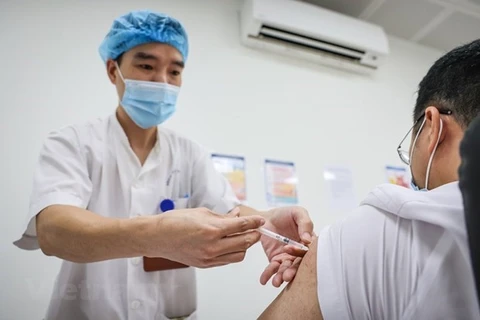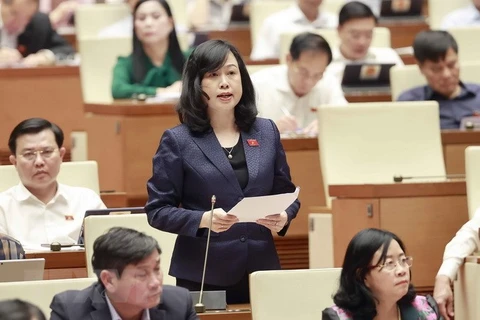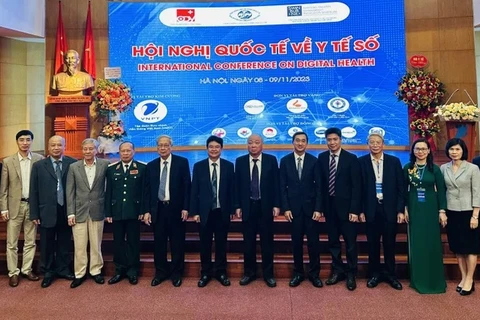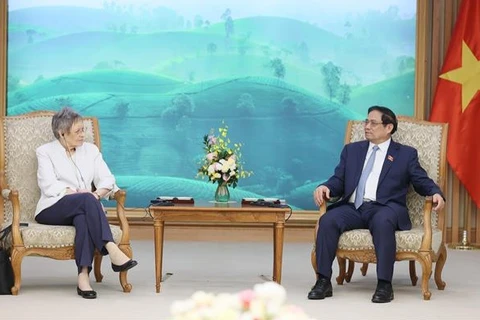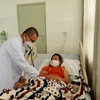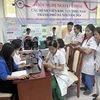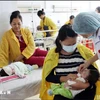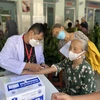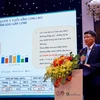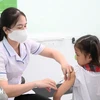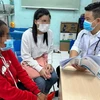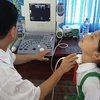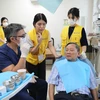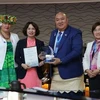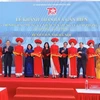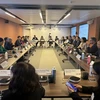Hanoi (VNA) – Vietnam and international healthcare research partners convened a two-day conference on November 20 to launch the country’s national strategy on antimicrobial resistance (AMR) prevention and control for 2023-2030, as part of activities responding to the ongoing World AMR Awareness Week.
The strategy was issued by Prime Minister Pham Minh Chinh via a decision dated September 25 this year. According to Luong Ngoc Khue, Vice Chairman of the National Medical Council, the issuance reflects the efforts of the Vietnamese government in collaboration with the World Health Organisation (WHO) and other international partners to counteract the increasing AMR issue.
At the conference, Deputy Minister of Health Tran Van Thuan stressed that AMR remains a concern in Vietnam despite scientific advancements made in the past decade, with antibiotic resistance trending upward over the years. Many challenges persist, including the limited capacity of laboratories to monitor and analyse data, inappropriate prescription of antibiotics, and a lack of enforcement of regulations on antibiotic sales.
Thuan called for the commitment of all sectors, agencies, organisations, and individuals to responsibly use antibiotics to strongly support the campaign against antibiotic resistance in Vietnam.
A representative of the WHO in Vietnam took the occasion to commend the government's approach to the matter and responsiveness during the World AMR Awareness Week —a global campaign held annually from November 18-24.
Vietnam is among the first six countries in the Asia-Pacific region to develop and implement a national action plan on AMR prevention and control, earning international recognition for its efforts and contributions to the global AMR fight./.
The strategy was issued by Prime Minister Pham Minh Chinh via a decision dated September 25 this year. According to Luong Ngoc Khue, Vice Chairman of the National Medical Council, the issuance reflects the efforts of the Vietnamese government in collaboration with the World Health Organisation (WHO) and other international partners to counteract the increasing AMR issue.
At the conference, Deputy Minister of Health Tran Van Thuan stressed that AMR remains a concern in Vietnam despite scientific advancements made in the past decade, with antibiotic resistance trending upward over the years. Many challenges persist, including the limited capacity of laboratories to monitor and analyse data, inappropriate prescription of antibiotics, and a lack of enforcement of regulations on antibiotic sales.
Thuan called for the commitment of all sectors, agencies, organisations, and individuals to responsibly use antibiotics to strongly support the campaign against antibiotic resistance in Vietnam.
A representative of the WHO in Vietnam took the occasion to commend the government's approach to the matter and responsiveness during the World AMR Awareness Week —a global campaign held annually from November 18-24.
Vietnam is among the first six countries in the Asia-Pacific region to develop and implement a national action plan on AMR prevention and control, earning international recognition for its efforts and contributions to the global AMR fight./.
VNA

